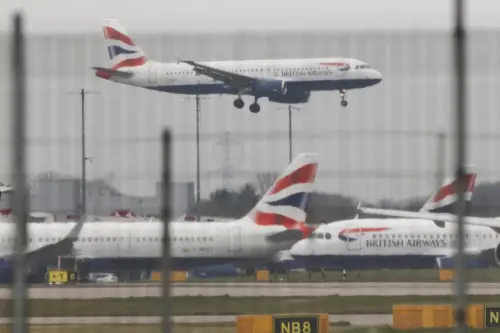Heathrow defended its decision to halt operations at Europe's busiest airport following an 18-hour closure that cost airlines tens of millions of pounds and left thousands of passengers stranded.
Questions arose regarding the failure of such a critical part of Britain's infrastructure and whether all four terminals needed to shut down. Both National Grid and Heathrow stated that the transformer failure was an unprecedented event.
Heathrow faced scrutiny after National Grid's CEO indicated that the electricity transmission network could have provided power to the airport throughout the crisis. Heathrow explained that a fire at a nearby substation late Thursday disrupted its operations, necessitating a shutdown while power was switched to an alternative substation.
"Hundreds of critical systems across the airport were required to be safely powered down and then safely and systematically rebooted," a spokesperson for Heathrow remarked. "Given Heathrow's size and operational complexity, safely restarting operations after a disruption of this magnitude was a significant challenge."
John Pettigrew, CEO of National Grid, pointed out that two other substations were available to supply power to Heathrow, emphasizing the resilience of the grid. "Two substations were always available for the distribution network companies and Heathrow to take power," he noted.
As airlines like British Airways, the most affected, tally the costs of the closure, the government and Heathrow are both investigating the incident. Transport Minister Heidi Alexander emphasized the importance of learning from the situation, stating that the ongoing reviews are critical.
When asked about her confidence in Heathrow's CEO Thomas Woldbye during an interview on LBC Radio, Alexander expressed a desire to see the results of the reviews.
Heathrow is a private company owned by French investment group Ardian, Qatar Investment Authority, Saudi Arabia's Public Investment Fund, and others.
